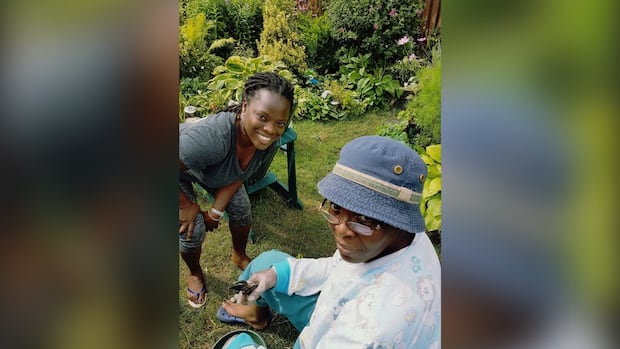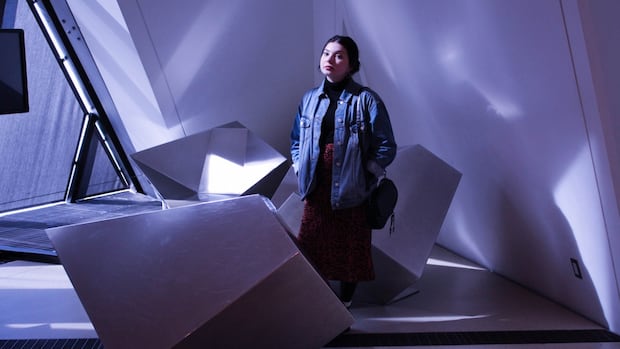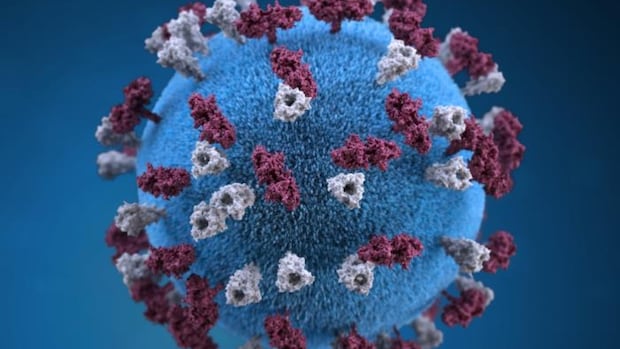A Montreal family is looking for the Good Samaritan who saved octogenarian Sabato Borrelli’s life after he collapsed and went into cardiac arrest while out on his daily walk, out of his home in the Ahuntsic-Cartierville borough.
Doctors told the family a stranger performed CPR on Borrelli for about 20 minutes before paramedics arrived and took over.
Sabato’s daughter, Gloria Borelli, believes her father was likely near Jarry Park when the incident happened around 3 p.m. on May 15, but has been unable to confirm the exact location as of yet.
Gloria says she wants to meet the person who gave her more time with her father.
“This gentleman, or woman or child — I don’t know who saved my father,” she said. “All they wanted was this person to have a chance and he was given that chance.”
Borrelli celebrated his 87th birthday while recovering at the hospital over the weekend.
For Lucy Orfeo, his awakening at the hospital after being sedated was particularly emotional. She lost her daughter — Borrelli’s granddaughter — Martina Borrelli, almost three years ago at just barely 20-years-old.
“My daughter wasn’t able to be saved,” said Orfeo.
After complaining about a headache, Martina suffered from a sudden brain haemorrhage, lost consciousness and went into cardiac arrest. Despite being in an ambulance when it happened, she died shortly after.
Orfeo said the Good Samaritan’s actions on May 15 feel like a tribute to Martina who was known for her kindness.
“‘If you’re kind you can change the world,’ that’s what she would say. That was her thing, so it’s kind of like what’s fuelling me,” said Orfeo about her search for the person who saved Borrelli.
“Our family was given a second chance.”
Every minute counts, says physician
Emergency physician Dr. François de Champlain says that most people will witness a cardiac arrest in their lifetime. There are 10,000 incidents that happen outside of hospitals every year in Quebec, he says.
With every minute that passes following the start of a cardiac arrest, the person’s chance for survival decreases by 10 per cent, he says, adding that the average Quebec ambulance arrives at any given scene in 13 minutes.
“So the math is pretty simple. If the citizen as a Good Samaritan doesn’t act right now before the first responder and the ambulance comes in, the chance of survival is essentially zero.”
De Champlain says that if a person is non-responsive and has laboured breath then whoever is nearby should assume they’re going into cardiac arrest, call 911, and begin chest compressions.
That looks like pressing with locked elbows, two inches into the centre of a person’s chest, between the nipple line, to the beat of “Staying Alive” by the Bee Gees — or about 100 to 120 beats per minute.
“Without doing this in the first few minutes, unfortunately it’s game over and it happens too often.”
Advocates say the $2 million the province is spending on public defibrillators is money well spent, as they can save lives, especially when emergency services take too long to respond.
The 911 operator can even walk the caller through CPR manoeuvres and direct them to the nearest defibrillator if a second person is available to get it. People can locate defibrillators, and also register them, using an app developed by the Jacques de Champlain Foundation, of which de Champlain is the president, called AED – Quebec.
“Right now the registration of those devices is non mandatory and that’s why for the past 10 years the foundation has been lobbying for this to become legislation in Quebec,” he said.
For Borrelli’s part, his family says he’s making good progress at the hospital.
Gloria describes him as an active man who can’t sit still, who tends to his garden, makes his own wine, and maintains bocce ball courts during the summer.
“We’re not done with Mr. Borrelli,” she said.






